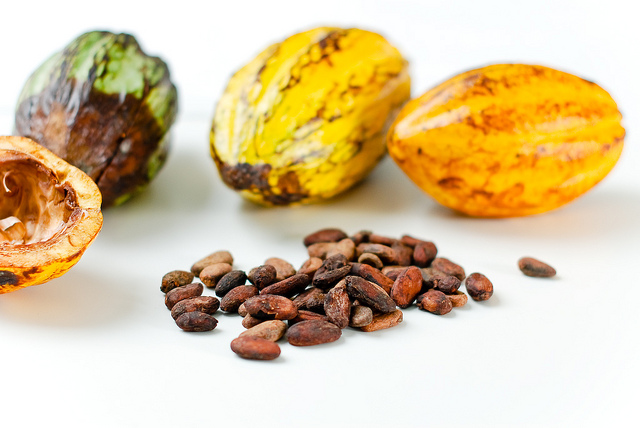This post is sponsored by Sweet Street.
As consumer demand for transparency continues to rise, it’s important for food sellers and manufacturers to know the origins of their ingredients. Being able to share the story behind what goes into their food lets brands give customers peace of mind about their purchases by assuring them that everything that went into creating the finished product was sourced safely, ethically and sustainably. In fact, environmental sustainability was ranked among the top trends of 2017 in the National Restaurant Association’s What’s Hot Culinary Forecast.
Bakery company Sweet Street Desserts has made thoughtful sourcing part of its overall mission. The Reading, Pa.-based brand encourages its suppliers to have ongoing sustainability programs with farmers. Included in Sweet Street’s lineup of sustainable ingredients are 35 different non-GMO chocolates that the brand uses across all of its product lines — from brownies and bars to pies and cupcakes.
Last summer, the company’s CEO and founder, Sandy Solmon, traveled to family-owned coffee and chocolate plantations in Peru to see first-hand how Sweet Street’s support of sustainable chocolate production impacts local economies and the lives of farmers and their families.
Peruvian cocoa production has been steadily climbing over the past 10 years and the country is likely to enter the ranks of the top 10 global cocoa producers in the coming years, according to a 2014 report by the US Department of Agriculture. As the country’s output grows to keep pace with rising demand for sustainable chocolate, the pressure on local producers increases.
“The farmer who owned the cacao plantation we visited was Jose, a 62-year-old, with soft eyes but strong arms gained from wielding his machete to cut the cacao from his trees,” Solmon said. “He can still climb a 20-foot-high tree that I would have hesitated climbing when I was 25. His father owned the 15-acre farm originally and lived to be 101. It is a hard life powered by passion for his land.”
Also growing on Jose’s 15-acre farm are coffee, sugar cane and a variety of fruits including mangos, avocados, pineapple and six kinds of bananas. The wide range of crops help keep the soil fertile and the area free of pests, he told Solmon.
Solmon started Sweet Street in 1979, operating the business out of a two-car garage. While the company has grown a great deal since then — customers in more than 60 countries now enjoy Sweet Street desserts — Solmon remains committed to a hands-on leadership style. She is the director of Research and Development, collaborating daily with chefs and food scientists in the company’s R&D kitchen, and travels the world to learn as much as she can about food.
While in Peru, Solmon toured cocoa plantations and had the opportunity to try her hand at the chocolate-making process, hand-grinding the cocoa beans. Some of the chocolate paste was slathered on the miniature bananas that grew on the farm, and some was mixed with boiling water to make an incredibly rich hot chocolate, she said.
“Running an organic farm in the jungle is a labor of love — I can’t imagine a harder life,” Solmon said.
_______________________________________________
If you enjoyed this article, join SmartBrief’s email list for more stories about the food and beverage industry. We offer 20 newsletters covering the industry from restaurants to food manufacturing.
